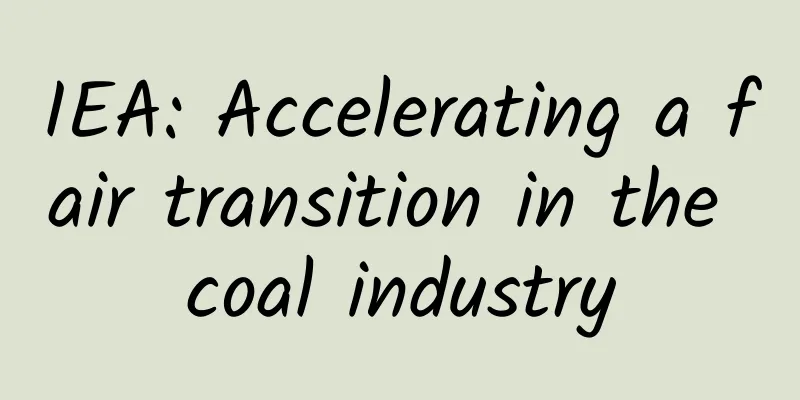IEA: Accelerating a fair transition in the coal industry

|
The International Energy Agency published “Accelerating a Just Transition for Coal”. In 2022, the IEA published its special report “Coal in the Net Zero Transition”. Since then, the policy and technology landscape has evolved. At the end of 2023, the 28th Conference of the Parties (COP28) to the United Nations Framework Convention on Climate Change (UNFCCC) called for a “phased reduction in the use of fossil fuels in the energy system”, including a specific call for Parties to start “accelerating efforts to phase out unabated coal power”. This report updates the 2022 report with new data and scenarios from the IEA. Net zero requires a rapid transition away from unabated coal-fired power generation Achieving the target of net zero greenhouse gas emissions from the energy sector by 2050, as adopted at COP28, depends crucially on a rapid shift away from reducing the use of coal for electricity generation. Global coal demand continues to grow in 2023 despite rapid growth in renewable energy generation. A growing number of countries have made commitments to net-zero emissions, which amounts to completely phasing out the use of coal and other fossil fuels. Transition from coal depends on rapid expansion of low-emission energy sources Only if alternative energy sources develop rapidly enough to meet the growing demand for electricity can it be possible to reduce dependence on the ever-increasing coal-fired power generation. Shifting coal-fired power plants from baseload generation to more flexible operation will reduce coal use while supporting the integration of alternative generation sources. New approaches needed to accelerate financing of transition away from coal Favorable economics for renewables are not, by themselves, sufficient to achieve a rapid transition away from coal power. Policies to boost clean energy financing must go hand in hand with measures to stop financing new coal power and to finance the early retirement of some coal assets. The transition away from coal is affordable Maintaining affordable electricity prices throughout the transition is critical. Policies for transitioning away from coal power must be people-centred and fair. Accelerating the transition away from coal will impact the workers and communities that rely on it. The nation’s commitment to reducing emissions and decarbonising electricity generation, if fully implemented, will inevitably lead to job losses in the coal industry, particularly in mining. |
<<: Why can iPhone only be upgraded and not downgraded?
>>: TCL "Happy Play" mobile phone review: a new choice for beginners
Recommend
Can’t write information flow advertising copy? There is a template here, just use it!
Many friends often complain to me: " Informa...
“Eating while it’s hot” may really cause cancer, so I advise you to stop immediately!
Freshly brewed hot tea, freshly cooked hot soup T...
Google outlines Android app development and policy changes for 2021
Google has just disclosed its development plan fo...
I never expected that dry, frizzy, and fluffy hair may be related to this disease...
Reviewer of this article: Zhou Xiaobo, Doctor of ...
Will wraparound screens and folding screens start a new battle for mobile phones?
It has been ten years since the death of Steve Jo...
How to plan and promote a perfect event?
I believe that every event planner or person who ...
How to organize a successful offline promotion activity?
How do you start to create an offline event? 1. T...
The entire process of setting up a Baidu search account, super detailed!
A good account structure, like a solid foundation...
Analysis and solutions for common rejection reasons of financial apps
The APP review here refers to the AppStore review...
4 types of marketing activities that are most likely to go viral!
There is another type of activity that is driven ...
How to perform user segmentation and achieve refined operations?
The author of this article mainly shares the appl...
Talking nonsense in the name of responding to doubts, what lies did Qudian CEO Luo Min blatantly tell?
Late in the evening, I was amused by an interview...
What is it like to write more than 1,000 lines of code by hand?
[[133627]] Isn't the code all written by hand...
Several ways to draw circular pictures in Android
There are often some requirements in development,...
The training institution’s circle of friends traffic strategy!
It is almost the end of the year, and education c...









